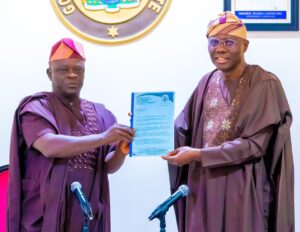


Cost of healthy diet stood at N1,041 in May – NBS
The National Average Cost of a Healthy Diet (CoHD) per adult a day stood at N1,041 in May 2024, the National Bureau of Statistics (NBS) has said.
The NBS revealed this in its CoHD report for May 2024 released on Friday in Abuja.
The bureau said that the CoHD in May increased by one per cent compared to the N1,035 recorded in April.
The NBS said the CoHD was the least expensive combination of locally available items that met globally consistent food-based dietary guidelines.
It said it was used as a measure of physical and economic access to healthy diets.
“This is a lower bound (or floor) of the cost per adult per day excluding the cost of transportation and meal preparation.”
The bureau said that to compute the CoHD indicator, the following data on Retail Food Prices, Food Composition Data, and Healthy Diet Standard were required.
The NBS also said that in May, the average CoHD was highest in the South-West at N1,189 per adult per day, followed by the South-East at N1,190 per day.
It said the lowest average CoHD was recorded in the North-West at N919 per adult per day.
The NBS further said that at the state level Ebonyi, Abia and Anambra recorded the highest CoHD at N1,225, N1,215, and N1,205, respectively.
The bureau said Kano recorded the lowest CoHD at N898, followed by Jigawa at N899, and Yobe and Katsina at N906.
The NBS said CoHD had steadily increased since the first CoHD report by the bureau in October 2023.
“The CoHD in May 2024 is 32 per cent higher than what was recorded in December 2023 at N786 and one per cent higher than CoHD in April 2024, which was N1,035.
“The food groups that have driven the increases in CoHD the most are starchy staples, legumes, nuts and seeds, and animal source foods.
“On the other hand, vegetables and fruits recorded the lowest increase in price on a month-on-month basis.”
The report added that animal-source foods were the most expensive food group recommendation to meet in May, accounting for 36 per cent of the total CoHD to provide 13 per cent of the total calories.
It noted that fruits and vegetables were the most expensive food groups in terms of price per calorie.
“They accounted for 11 per cent and 12 per cent, respectively, of the total CoHD while providing only seven per cent and five per cent of total calories in the Healthy Diet Basket.
“Legumes, nuts and seeds were the least-expensive food group on average, at seven per cent of the total cost.’’
The report also says that in recent months, the CoHD had risen faster than general inflation and food inflation.
“However, the CoHD and the food Consumer Price Index (CPI) are not directly comparable.
“The CoHD includes fewer items and is measured in Naira per day, while the food CPI is a weighted index.”
The NBS said the policy implications of these results would foster collaboration among a wide range of stakeholders, such as policymakers, researchers and civil society actors that focused on food security.
“These stakeholders will devise strategies that tackle access, availability, and affordability of healthy diet effectively.
“Also future research incorporating income can also be used to determine the proportion and number of the population that are unable to afford a healthy diet,” the report said.



